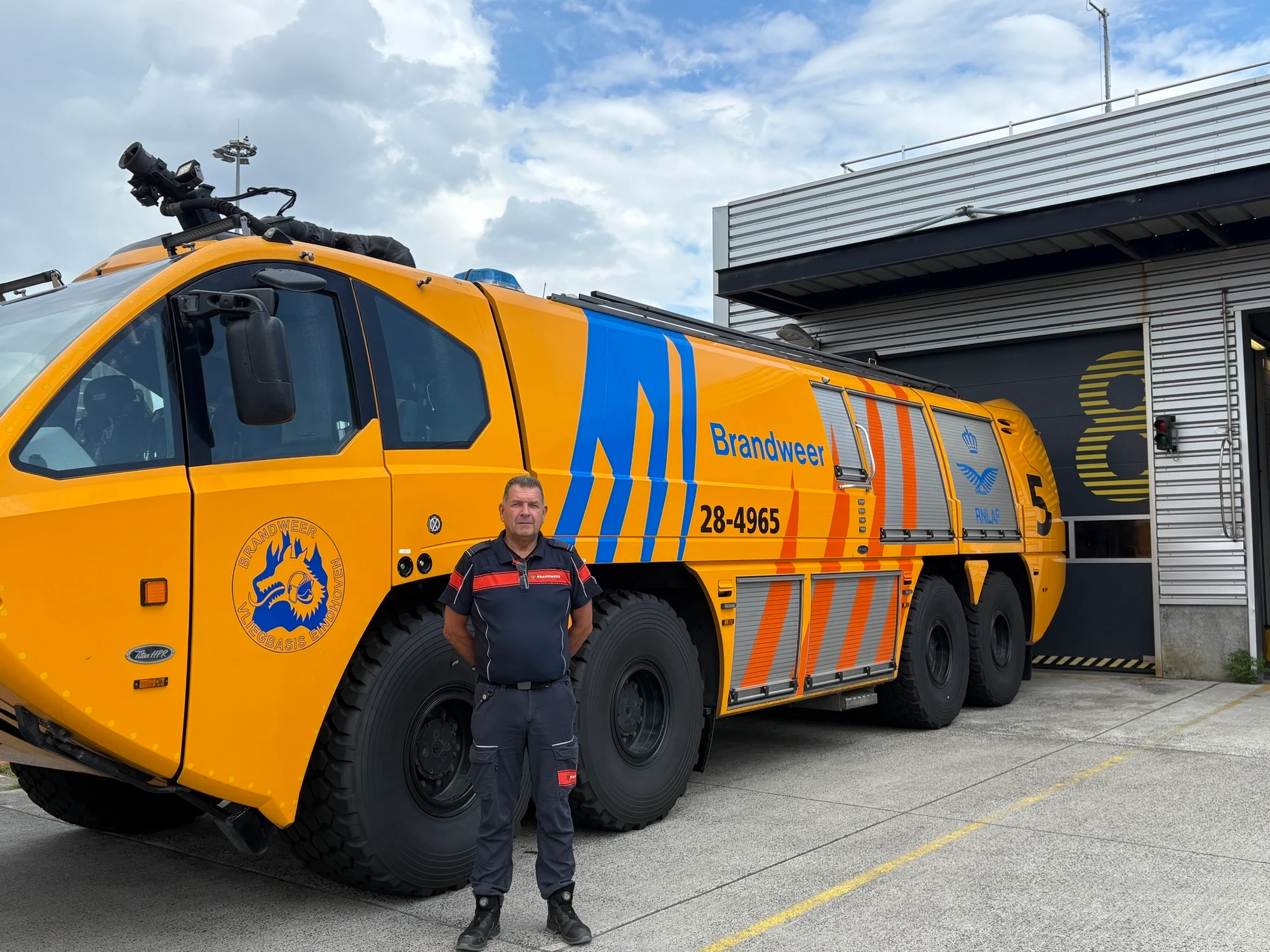
'The fire department is always ready to help'
Name: Arco Sprengers Position: Head of Preparation, Fire Department, Eindhoven Air Base Leisure Activities: Sim racing, listening to music, and attending concerts with friends
“I’m not really into this,” says Lieutenant Arco Sprengers, Head of Preparation at the Fire Department of Eindhoven Air Base, at the start of our conversation. “But I believe we should show what we do and who we are. Many people, for example, don’t know that we also work for the civilian airport.”
Sprengers is a veteran at the air base fire department. He started in 1993, served thirteen years as a crew commander, and was part of the emergency response team. He also spent time as an On Scene Commander—leading operations during emergencies. In 2017, he transferred to the fire department at Gilze-Rijen Air Base, where he became Head of Preparation in 2022. In March 2024, he returned to his old post in Eindhoven. Sprengers is one of 82 firefighters who, divided into four teams, ensure fire safety at the airport 24/7.
Although fires are fortunately rare at the airport, the fire department is far from idle. They regularly respond to incidents such as hot brakes, where they provide cooling. They’ve also assisted in minor accidents involving sport aircraft and were on standby for precautionary landings. In 2024, the fire department provided medical assistance to ambulance personnel at Eindhoven Airport several times a month, and over ten times at the air base. For example, they helped evacuate sick passengers from aircraft. The air base fire department operates on the platform and in and around the terminal; in case of incidents, the civilian fire department can also be deployed. Sprengers says, “We are passionate emergency responders who help resolve difficult situations and ensure fire safety.”
This requires thorough preparation, coordination, and clear agreements. A key requirement is that the fire department is always ready for any possible scenario—from aircraft fires to medical emergencies and other incidents. The fire brigade has one fire engine, five crash tenders, and an on-scene commander vehicle. It’s Sprengers’ responsibility to ensure everything his colleagues need is ready for deployment—from the fire engine and extinguishing materials to the training every firefighter must successfully complete. And precision is crucial. “No checkmark for a training means you can’t go out on the truck, and a full fuel tank and supplies of water, foam, and powder are mandatory.”
Sprengers also manages the crew commanders and is responsible for staffing and scheduling. He frequently visits the team on the ground. “I don’t want to sit in an ivory tower. I want to know what’s going on because we have to do this together.” He also enjoys contributing to the development of his team. “It’s great to see people grow personally and gain confidence in themselves.”
Sprengers has helped resolve various emergencies and has seen a lot. Of all his experiences, the Hercules disaster (1996) will never leave his memory. He wasn’t on duty but came immediately and helped extinguish the fire of the crashed aircraft at the air base. “All those victims—it was terrible.” Sprengers lost an old school friend. He has processed the trauma, but the criticism the fire department received at the time still hurts.